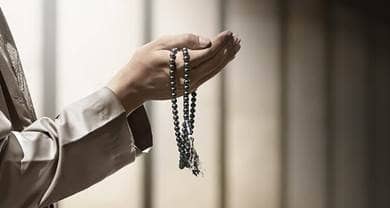- Trending:
- Pope Leo Xiv
- |
- Israel
- |
- Trump
- |
- Social Justice
- |
- Peace
- |
- Love

RELIGION LIBRARY
Shia Islam
Afterlife and Salvation
Sunnis and Shiites agree regarding the basic features of afterlife and salvation. After their death, individuals remain in a state of limbo in between life and death. In their graves, two angels, Munkar and Nakir, question them about their principles of faith. Whereas in the Sunni tradition the two angels only ask about someone's god, religion, and prophet, in the Shiite tradition the interrogators also enquire about the Imam a person has believed in. Shiites confirm that it is Ali. After this initial test, people sleep in their graves until bodily resurrection takes place and they are assessed according to their deeds and sent to hell or paradise.
Before the Day of Judgment, the world comes to an end amidst apocalyptic events. Islamic beliefs regarding these events comprise many elements in different variants and not always result in coherent expectations. The signs of the approaching end of the world are transformations of nature (such as the sun rising in the West), political conflicts, moral decay, and physical afflictions. The Mahdi will not only have the same name as Muhammad, but also—like him—will bring a revelation to restore truth and destroy earlier religions.
In Ismaili versions of human history, Muhammad ibn Ismail is the prophet-speaker of the last era, which brings the end of history. All established religions, laws, and social orders are abolished and the spiritual truth that had been hidden as inner or secret knowledge prevails. As in Shiite tradition more generally speaking, the arrival of the Mahdi also means the punishment of unbelievers. As in other apocalyptic traditions, astrological concepts often underpinned Islamic eschatology. The turn of a century was a likely candidate for the arrival of the Mahdi. Claims of individuals that they restore Islam are known from both Sunni and Shiite context; the latter are often characterized as following a Shiite model.
Like Sunnis, Shiites believe that everybody is going to be assessed on the Day of Judgment according to their deeds. The modern commentator of the Quran, al-Tabatabai, explains along the lines of the earlier exegetical tradition that there are exoteric and esoteric aspects of the Day of Judgment. The outer dimension focuses on God's role as Creator and master over humankind. "The human species is His creation and human beings are His servants who must obey His commands and prohibitions; and the prophets are the bearers of His messages, the conveyors of the laws and regulations which He has sent to mankind and has demanded that mankind obey."
In a typical rationalist fashion, al-Tabatabai emphasizes God's justice when judging every human being. "God has promised reward and recompense for faith and obedience, and punishment and painful retribution for infidelity and sin, and will not break His promise. And since He is just, His justice demands that in another state of being the two groups of virtuous and evil men, who in this world do not have a mode of life in accordance with their good and evil nature, become separated, the virtuous to possess a good and happy life, and the evil a bad and wretched existence." (translation by Seyyed Hossein Nasr)
While martyrs are celebrated for their sacrifice, martyrdom and other forms of significant suffering are not an absolute imperative. In cases of persecution Shiites may use the device of disguising their beliefs (taqiya). This principle was also accepted by Sunnis and Kharijites under certain circumstances. Those, however, who have lost their lives in the struggle for God's cause are celebrated, as they are in Sunni Islam. For Imamis, salvation lies in self-sacrifice on the side of the losers, often in conflicts with fellow Muslims, and is tragic, whereas for Sunnis, it is heroic and means fighting for the winning side.
In Sunni Islam, individuals are assessed exclusively according to their deeds without the possibility of intercession. Yet even within the Sunni traditions, there are tendencies to allow for possibilities of intercessions, for example by having a relative who dies as a martyr or by praying at the tomb of a Sufi shaykh. The latter is the source of blessings (baraka) that can be passed on. These options are, however, controversial and denied by more "orthodox" Sunni scholars. In Shiite Islam the possibility of intercession through the Imams is generally accepted. Weeping for Husayn or causing others to do so is believed to bring a believer into paradise. According to Shiite accounts of salvation history, the martyrs of Karbala had accepted their suffering even before the world was brought into being in order to create the possibility of interceding on behalf of believers. In some traditions, they can achieve such intercession by visiting the shrines, commemorating the sacrifice of the Imams, and sharing during Muharram the pain of the martyrs. According to a tradition that Pinault reports from Hyderabad, Fatima is present during these rituals and returns after them to paradise with the impression of the veneration for her son.
Study Questions:
1. What do Shiites have in common with Sunnis in regard to beliefs in the afterlife? And how do they differ?
2. What does Ismaili theology contribute to the discussion of salvation and the Day of Judgment?
3. What is the role of intercession in salvation?










